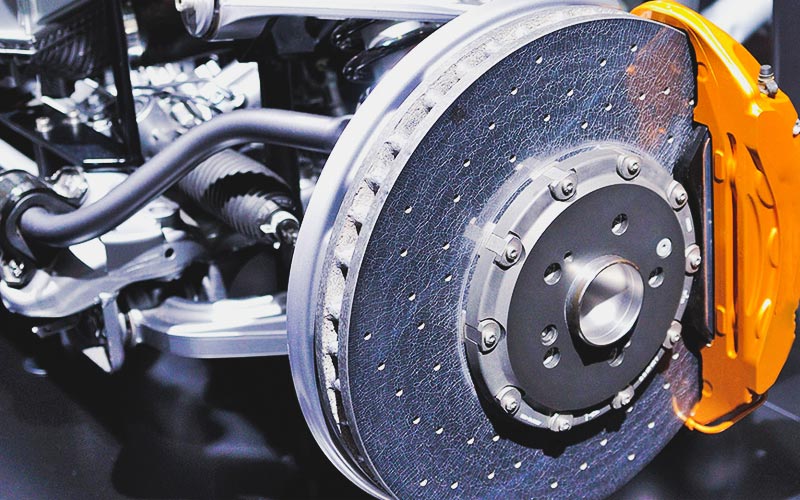Braking systems are essential to automotive safety, ensuring that vehicles can stop effectively and efficiently. In this article, we’ll explore the fundamentals of car braking systems, drawing insights from www.allrotors.com, a reputed online resource in the automotive world.
Types of Braking Systems
- Disc Brakes: Widely used in modern vehicles, disc brakes consist of a brake disc, caliper, and brake pads. When the brake pedal is pressed, the calipers squeeze the pads against the disc, creating friction that slows the vehicle.
- Drum Brakes: Common in older models and some rear-wheel setups, drum brakes have a brake drum and shoes. When engaged, the shoes expand outwards to press against the drum, slowing the car down.
Brake Components
- Brake Pads and Shoes: These are critical in both disc and drum systems. The material composition, often highlighted on www.allrotors.com, significantly affects braking performance and wear.
- Rotors and Drums: The rotors in disc brakes and drums in drum brakes are key surfaces against which the pads and shoes create friction.
- Calipers and Wheel Cylinders: These components apply pressure to the pads and shoes, and their proper functioning is crucial for effective braking.
Technological Advances
Modern braking systems have evolved with technology. Anti-lock Braking Systems (ABS), featured on www.allrotors.com, prevent the wheels from locking up during braking, maintaining traction. Electronic Brakeforce Distribution (EBD) and Brake Assist (BA) are other advancements that improve braking efficiency and safety.
Maintenance Tips
As advised by www.allrotors.com, regular maintenance includes checking brake pads for wear, ensuring fluid levels are correct, and inspecting rotors for warping or damage. Responsive maintenance ensures safety and prolongs the life of the braking system.
Why Should Car Braking Systems Be Checked Regularly?
- Safety: The most important reason is safety. Brakes are a critical component of your vehicle that allows you to slow down or stop, helping to prevent accidents. If the braking system is not functioning correctly, it significantly increases the risk of a collision.
- Preventative Maintenance: Regular checks can identify issues before they become serious problems. For example, brake pads wear down over time, and if they are not replaced when needed, they can damage the rotors, leading to more expensive repairs.
- Performance and Reliability: Well-maintained brakes ensure consistent performance. This is especially important in adverse driving conditions, such as in wet or icy weather, where effective braking can make a significant difference.
- Legal Compliance: In many places, having a properly functioning braking system is a legal requirement for vehicles. Regular checks ensure compliance with these laws, helping to avoid fines or penalties.
- Cost Savings: By identifying and fixing minor issues during regular checks, you can avoid more costly repairs down the line. For instance, replacing worn brake pads is relatively inexpensive compared to replacing damaged rotors or an entire brake system.
Frequently Asked Questions
1. What are modern car braking systems?
Modern car braking systems are advanced systems that use electronics and computer control to enhance vehicle stopping power, stability, and safety.
2. How do anti-lock braking systems (ABS) work?
ABS prevent the wheels from locking up during braking, allowing the driver to maintain steering control by rapidly pulsing the brakes.
3. What is electronic brakeforce distribution (EBD)?
EBD automatically varies the amount of force applied to each of a vehicle’s brakes, based on road conditions, speed, and loading, to improve control and stopping distances.
4. What are brake assist systems?
Brake assist systems detect emergency braking by the driver and automatically apply maximum braking power to reduce stopping distance.
5. What is regenerative braking?
Regenerative braking recovers energy that would otherwise be lost during braking and uses it to recharge the vehicle’s battery, especially in electric and hybrid vehicles.
6. How do disc brakes differ from drum brakes?
Disc brakes use calipers to squeeze pairs of pads against a disc to create friction, whereas drum brakes force shoes outward against a rotating drum. Disc brakes are more efficient and provide better stopping performance.
7. What is a parking brake, and how does it work?
A parking brake, also known as a handbrake or emergency brake, is a mechanical system that prevents a vehicle from moving when parked. It typically works by applying the brakes to the rear wheels manually.
8. What is adaptive cruise control with stop-and-go?
This system uses radar and sensors to maintain a set distance from the car ahead, automatically adjusting speed to keep pace, including stopping and starting in traffic.
9. How do dynamic brake lights work?
Dynamic brake lights flash or increase in intensity under heavy braking to warn following drivers of a potential emergency stop, improving reaction times and reducing rear-end collisions.
10. What maintenance do modern braking systems require?
Regular maintenance includes checking brake pads and discs for wear, ensuring correct fluid levels, and inspecting the system for leaks or damage to ensure optimal performance and safety.
Conclusion
Understanding the basics of car braking systems is vital for any driver or automotive enthusiast. Professionals offer valuable insights into these crucial components’ latest trends and maintenance tips. Remember, a well-maintained braking system is not just about performance; it’s a cornerstone of vehicular safety.













